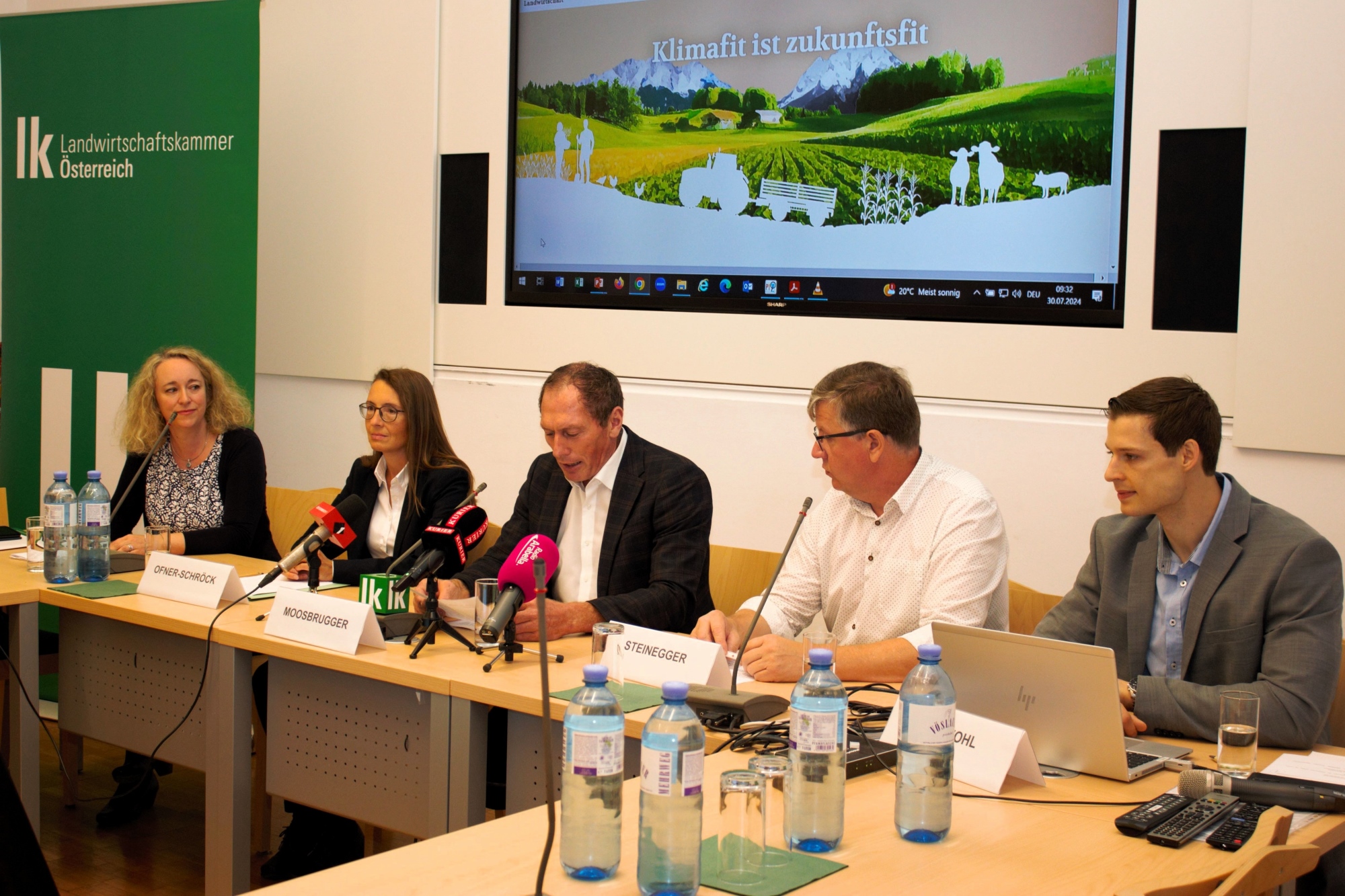As part of the project led by the Rural Training Institute (LFI), researchers and consultants from German-speaking countries worked intensively together. Scientists from the HBLFA Raumberg-Gumpenstein contributed current findings and practical tips from grassland farming and fertilization to animal husbandry and ventilation technology. The numerous podcast contributions as well as videos, technical documents and sets of slides created by the HBLFA Raumberg-Gumpenstein are also used.
Over 160 practical tips for adaptation have been developed
Concrete and practical recommendations for adaptation are proposed, which are based on the latest scientific findings. These include, among others
- the promotion of climate-friendly crops and
- improving water conservation and use in agriculture.
The initiative aims to increase farm resilience to extreme weather events and promote sustainable farming and animal husbandry practices . This also contributes to securing the long-term food supply and livelihoods in rural regions.
The HBLFA Raumberg-Gumpenstein would like to thank the project partners for the good cooperation and will continue to work with full commitment to make Austrian agriculture climate-fit. For further information about the project, please visit the website at www.klimafittelandwirtschaft.at .
You can access our podcast series at https://raumberg-gumpenstein.at/podcasts - under this link we have put together the podcast contributions with tips on climate change adaptation and lots of background information for you.
© Austrian Chamber of Agriculture, B. Kraml










